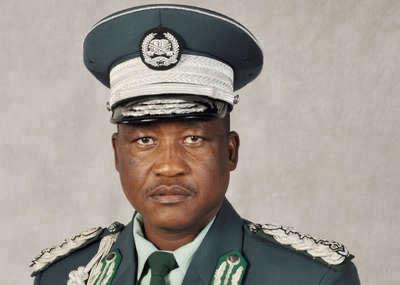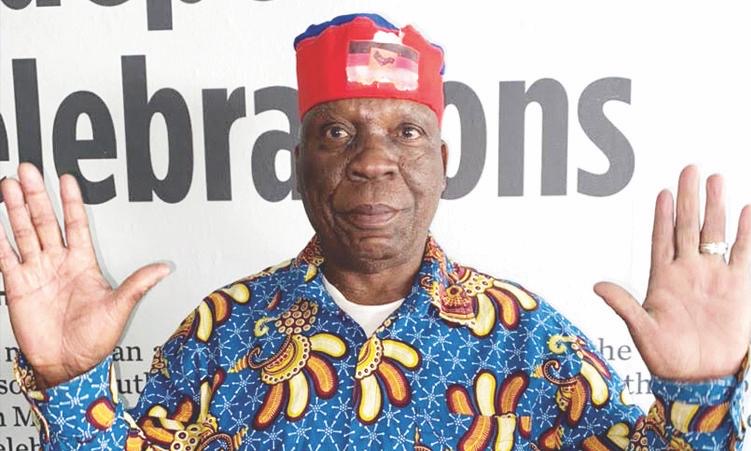KINSHASA – The new government in the Democratic Republic of Congo was announced on Monday, almost 12 weeks after President Joseph Kabila was declared the winner of bitterly contested and sometimes violent elections.
Headed by Antoine Gizenga, 81, named prime minister on December 30, the government has 60 members: six ministers of state, 34 ministers and 20 deputy ministers. Gizenga’s appointment had been a near certainty, and had figured in electoral accords.The veteran politician served under the country’s first prime minister, Patrice Lumumba, who was assassinated.Details of the new administration were read out on national television.The composition of the government was worked out by Gizenga and Kabila, 35, with a view to embracing a spectrum of political parties and the attribution of jobs was keenly contested.The task facing the new government is huge, as the country, exhausted by almost five years of war, needs urgent reform and still faces acute security problems.Rwandan Hutu rebels of the Democratic Forces for the Liberation of Rwanda (FDLR) are still operating in eastern DRC.Many members of the group are believed to have taken part in the 1994 genocide in Rwanda, which left some 800 000 people dead, most from the minority Tutsi ethnic group, according to UN figures.Kabila’s coalition, the Alliance of the Presidential Majority, has taken most of the senior jobs in the government, including all those connected to reconstruction and security.The ministers of state are all senior figures in the coalition.The number two in protocol terms will be Francois Mobutu, the president of the Union of Mobutuist Democrats (UDEMO), who was named agriculture minister.It had been a weak electoral showing by the party of Mobutu – who is also the son of former Zairian dictator Mobutu Sese Seko – but his high post is viewed as recompense for his strong backing for Kabila in the second round of the October 2006 polls.The interior ministry stays in the hands of the incumbent, General Denis Kalume, a close confidante of Kabila who has bee iron-fisted in putting down election-related violence since August 2006.The foreign ministry goes to Antipas Nyamwisi, the head of the Forces for Renewal (FR), a main ally in Kabila’s coalition.Nyamwisi is a former rebel leader who previously held the post of minister for regional cooperation.Gizenga’s Unified Lumumbist Party (PALU) was given the education ministry which will be headed by academic Sylvain Ngabu.Pierre Lumbi, leader of the Social Movement for Renewal (MSR), was given control over the infrastructure, public works and reconstruction portfolios.The sixth and final ministerial position, that of minister of state near the president of the republic, went to Nkulu Mitumba, one of Kabila’s closest allies.Gizenga’s current spokesman Godefroid Mayobo, was named as the prime minister’s closest deputy.Nampa-AFPGizenga’s appointment had been a near certainty, and had figured in electoral accords.The veteran politician served under the country’s first prime minister, Patrice Lumumba, who was assassinated.Details of the new administration were read out on national television.The composition of the government was worked out by Gizenga and Kabila, 35, with a view to embracing a spectrum of political parties and the attribution of jobs was keenly contested.The task facing the new government is huge, as the country, exhausted by almost five years of war, needs urgent reform and still faces acute security problems.Rwandan Hutu rebels of the Democratic Forces for the Liberation of Rwanda (FDLR) are still operating in eastern DRC.Many members of the group are believed to have taken part in the 1994 genocide in Rwanda, which left some 800 000 people dead, most from the minority Tutsi ethnic group, according to UN figures.Kabila’s coalition, the Alliance of the Presidential Majority, has taken most of the senior jobs in the government, including all those connected to reconstruction and security.The ministers of state are all senior figures in the coalition.The number two in protocol terms will be Francois Mobutu, the president of the Union of Mobutuist Democrats (UDEMO), who was named agriculture minister.It had been a weak electoral showing by the party of Mobutu – who is also the son of former Zairian dictator Mobutu Sese Seko – but his high post is viewed as recompense for his strong backing for Kabila in the second round of the October 2006 polls.The interior ministry stays in the hands of the incumbent, General Denis Kalume, a close confidante of Kabila who has bee iron-fisted in putting down election-related violence since August 2006.The foreign ministry goes to Antipas Nyamwisi, the head of the Forces for Renewal (FR), a main ally in Kabila’s coalition.Nyamwisi is a former rebel leader who previously held the post of minister for regional cooperation.Gizenga’s Unified Lumumbist Party (PALU) was given the education ministry which will be headed by academic Sylvain Ngabu.Pierre Lumbi, leader of the Social Movement for Renewal (MSR), was given control over the infrastructure, public works and reconstruction portfolios.The sixth and final ministerial position, that of minister of state near the president of the republic, went to Nkulu Mitumba, one of Kabila’s closest allies.Gizenga’s current spokesman Godefroid Mayobo, was named as the prime minister’s closest deputy.Nampa-AFP
Stay informed with The Namibian – your source for credible journalism. Get in-depth reporting and opinions for
only N$85 a month. Invest in journalism, invest in democracy –
Subscribe Now!







